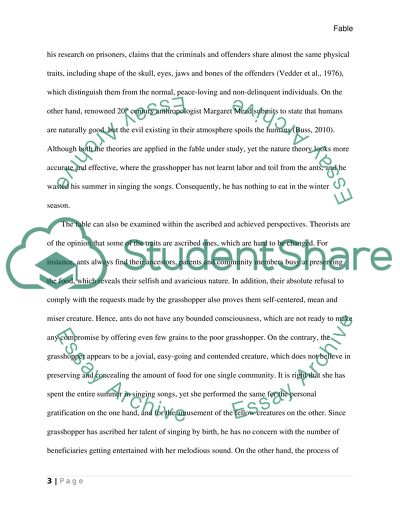Cite this document
(“The Fable Essay Example | Topics and Well Written Essays - 1000 words”, n.d.)
Retrieved from https://studentshare.org/psychology/1449030-fable
Retrieved from https://studentshare.org/psychology/1449030-fable
(The Fable Essay Example | Topics and Well Written Essays - 1000 Words)
https://studentshare.org/psychology/1449030-fable.
https://studentshare.org/psychology/1449030-fable.
“The Fable Essay Example | Topics and Well Written Essays - 1000 Words”, n.d. https://studentshare.org/psychology/1449030-fable.


